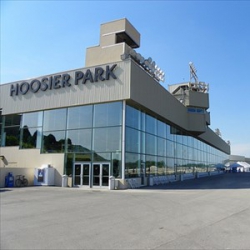The Indiana General Assembly approved a gambling bill intended to move inland the riverboat casinos of the state. Indiana’s politicians said they were pushing through the measure to allow the state’s gambling industry to compete against operations in Ohio and Illinois.
Negotiations on the legislation were hard even until the final hours before a vote. At 2 pm on April 30, the two sides could not agree upon wording that would allow for successful passage. By 7 pm, the two sides had a compromise which allowed the measures to pass 75-11 in the General Assembly and 36-13 in the Senate. The legislation now goes to Governor Mike Pence.
House Bill 1540
The riverboat casino proposal had broad, general support from both sides of the aisle. A second bill, House Bill 1540, passed in the General Assembly on April 30, but it provided the sticking point in the pre-vote negotiations.
HB 1540 addresses the live dealer issue in the state, without forcing the hand of Governor Mike Pence. Gov. Pence has stated on occasions that he is not going to support “an expansion of gambling”.
Live Deal Games at Racinos
The live dealer bill, which would replace electronic table games in racetrack casinos with live dealer games (and create more jobs), is likely to be viewed as an expansion of gambling by Pence’s constituency.
That means HB 1540 has no assurance of passing when it is placed in the governor’s office. To give the governor some wiggle room, the legislature made sure live dealers would not appear until 2021. That happens to be just after Mike Pence would have served his second term in office–a natural time to get out of the governor’s mansion.
Original Version of HB 1540
In the original version of House Bill 1540, the law would have gone into effect immediately. Legislators assumed Mike Pence would veto that bill without any consideration, so they altered the text to give him leeway. Whether Pence’s supporters who like his anti-gambling expansion stance would see an expansion after he left office as “no expansion”, is another matter.
Alting Praised the Racinos
Sen. Ron Alting, a Republican from Lafayette, said that he was pleased with the process the racino owners went through to accommodate the governor. Alting said, “They could have took a bad attitude towards it, but they didn’t. They supported this bill.”
Lanane Criticized Mike Pence
Tim Lanane, the Senate Minority Leader and a Democrat from Anderson, was not as sanguine about the results. Lanane said he did not like that the date was pushed back 6 years, saying the original measure would have created new jobs immediately. Instead, gaming machines continue to do all the heavy work, while people go without jobs.
Sen. Lanane said, “It’s hundreds of jobs that we’re just giving up for the communities near Anderson and Shelbyville. The best I can figure out, the only reason we’re not doing that is because of the threat of a veto from the governor.”
Details of the Negotiations
Lanane tried to change the language in the proposal from a 5-year moratorium to a 3-year delay, but was rebuffed. He suggested that lawmakers should have passed the legislation and forced the governor to veto a job creation program. One got the idea the Democratic senator thought the governor’s threat was a bluff.
Lanane said, “The fact of the matter is that this was the opportunity for us to actually create some jobs and we’re not doing it because of the threat of the governor of the state of Indiana to veto this legislation.”
Pokagon Band of Potawatomi Indians
Of more immediate value in House Bill 1540 is a provision that allows the state to begin to negotiate with the Pokagon Band of Potawatomi Indians. The Pokagon Band is seeking to build a casino on their reservation lands, which is allowed under federal law.
States are barred by a 1987 US Supreme Court decision (involving a tribe from California) from banning Indian casinos or taxing them, though the same decision required the Native American tribe to negotiate certain terms with the state. In those negotiations, the state usually gains regulatory oversight and a certain percentage of revenues in the 8% to 11% range, while casinos owned by private interests tend to be taxed at a rate between 20% and 30%, depending on the state.

